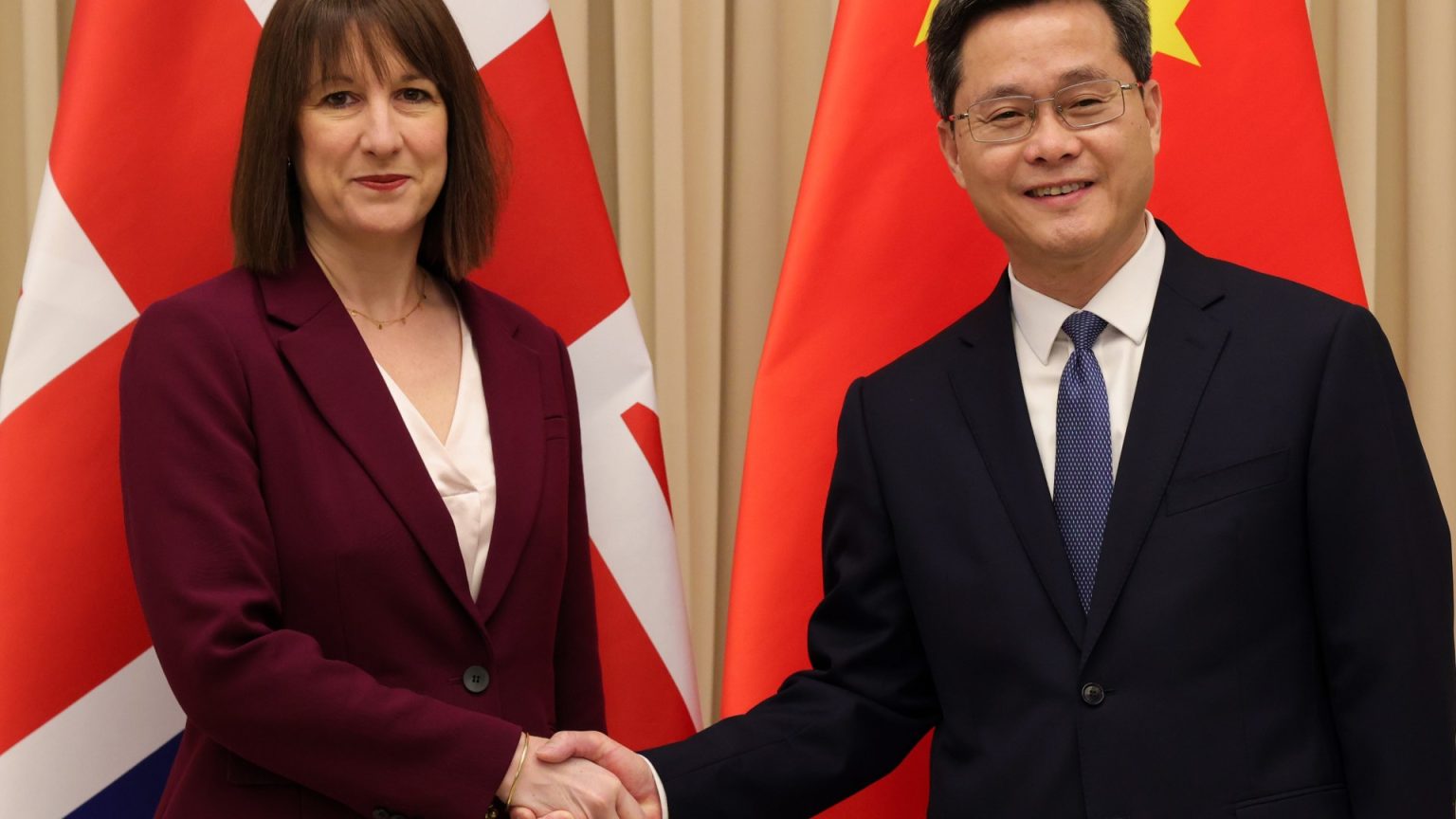Rachel Reeves, the UK’s Chancellor of the Exchequer, embarked on a trip to China amidst a brewing economic storm at home, prompting criticism and concern from various quarters. Experts, including economists at Barclays, warn that rising borrowing costs significantly constrain Reeves’ fiscal options, potentially forcing her to implement tax hikes or emergency spending cuts. This precarious situation, exacerbated by the recent surge in gilt yields, has fueled speculation about the government’s ability to manage the nation’s finances and has put Reeves’ economic policies under intense scrutiny. The timing of her trip, coinciding with this economic turbulence, has drawn sharp criticism, with some accusing her of abandoning the country during a critical period.
The Chancellor’s visit to China aimed to discuss economic cooperation and strengthen financial ties, a strategy seen by some as crucial for stimulating growth. However, critics argue that the trip is ill-timed and unproductive, particularly given the existing tensions between the UK and China. Former Conservative Party leader, Sir Iain Duncan Smith, condemned the visit as pointless, asserting that China, under its current regime, is unlikely to deliver the economic benefits the Labour government seeks. He emphasized the importance of addressing the immediate economic challenges at home, rather than pursuing what he perceives as a futile diplomatic endeavor. The escalating economic pressures, reflected in the rising gilt yields, further complicate the Chancellor’s ability to navigate the current crisis.
The surge in gilt yields, the interest rate demanded by investors on government bonds, is a significant indicator of the growing concern over the UK’s economic stability. These yields have continued to rise, impacting mortgage rates and adding further pressure on homeowners. This rise directly influences the cost of borrowing for lenders, who rely on government bonds to price their mortgages. Consequently, homeowners are facing the prospect of increased mortgage payments, further straining household finances. Matt Smith of Rightmove, a prominent property website, highlights the immediate impact of rising gilt yields, predicting further increases in mortgage rates due to the escalating borrowing costs for lenders. This situation presents a challenging dilemma for homeowners, who must now navigate the uncertainty surrounding mortgage rates.
The debate around Reeves’ economic policies and the timing of her China trip underscores the deep divisions within the political landscape. Critics from within the Conservative Party, such as Shadow Chancellor Mel Stride, have seized the opportunity to attack Reeves’ economic management, blaming her recent budget for the current economic woes. Stride called for Reeves to return immediately from China and address the escalating crisis. This criticism reflects the ongoing political battles and the attempts to capitalize on the current economic difficulties to score political points.
The economic situation facing the UK is multifaceted, encompassing rising borrowing costs, fluctuating gilt yields, and increasing mortgage rates. These interconnected factors present significant challenges for both the government and individual households. The rise in gilt yields signifies a growing lack of confidence in the government’s ability to manage its finances, potentially leading to higher borrowing costs. This, in turn, affects mortgage rates, increasing the financial burden on homeowners. The rising cost of living, coupled with potential tax increases or spending cuts, further exacerbates the financial pressures on households across the country.
The Chancellor’s visit to China, while intended to foster economic cooperation, has become a focal point of criticism amidst the ongoing economic turmoil. The timing of the trip, coupled with the escalating economic challenges, has fueled debates about the government’s priorities and its ability to address the immediate concerns facing the nation. The rising gilt yields, increasing mortgage rates, and the potential for further tax increases or spending cuts create a complex and challenging economic landscape, demanding decisive action and effective solutions. The Chancellor’s response to this crisis will be closely scrutinized, as the country grapples with the uncertainties and potential consequences of the current economic climate.




